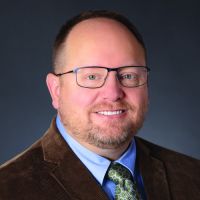
More than half of Worley’s revenue over the last fiscal year came from energy transition and sustainability projects. (Source: Shutterstock)
From Louisiana LNG plants to Occidental Petroleum’s direct air capture (DAC) project in the Permian Basin, Worley is working to put operations on a sustainable path.
The problem, CEO Chris Ashton said, is that political rhetoric hasn’t necessarily translated into regulatory reality.
“Policy certainty is not where it needs to be,” Ashton said.
What’s complicating the work done by Worley and others are elections, which can make life difficult for those building transitional infrastructure that are on a decades-long timeframe.
“One of the challenges that we're faced with is, most of us well know there are more elections in this year in the developed world than there's ever been, and with that comes political uncertainty,” Ashton said.
More than half of Worley’s revenue over the last fiscal year came from energy transition and sustainability projects.
A lack of certainty has consequences with investors, who generally prefer more traditional projects than those that face uncertain outcomes because a government is still determining (or can change) its regulatory framework.
To support renewable energy, the U.S. specifically needs to solidify some of the policies created through the Inflation Reduction Act, which underwent a contentious political process before it was signed into law in August 2022, Ashton said.
The act provided tax credits and incentives for the development of renewable energy. Some of those tax credits are still being worked out. The IRS website, for example, says it will post guidance for taxpayers on “all credits and deductions from the Inflation Reduction Act as it becomes available. Please check back regularly for updates.”
Ashton said he is optimistic that the upcoming U.S. election will result in increased confidence towards investment in the energy transition.
“We're actually not seeing the deployment of those economic incentives on a pace and scale that are necessary for us to move things forward,” the CEO said.
The CEO spoke Sept. 18 at Gastech Houston, in a session entitled “Delivering projects in a challenging operating and cost environment.” Ashton discussed taking over as Worley CEO in 2020, right before the COVID-19 outbreak and “the world shutting down.”
In March, Shell awarded Worley a contract to provide engineering and procurement services for the company’s Holland Hydrogen 1 (HH1) project in the Netherlands. In June, Argent LNG named Worley as the development partner for a future LNG project in Port Fourchon, Louisiana, that will have a lower carbon footprint than other LNG projects of similar size.
Ashton said that through building a trust-based relationship, companies can overcome the uncertainties that would otherwise hurt a project.
He referred to the company’s ongoing construction of the world’s largest DAC plant, which Worley is building with Occidental. Once operational, the plant is expected to capture up to 500,000 metric tons per year of CO2, with the capability to scale up to 1 MMmt/year.
The companies have developed an integrated decision-making process that has led to some positive outcomes in development so far.
“The nature with which we work and how we work together — trust-based, integrated, joint decision making — leads to the decisions made at pace, removes uncertainty and leads back to the predictability of outcome,” Ashton said.
Recommended Reading
Tethys Oil Suspends Kunooz-1 Well in Oman
2024-12-13 - The decision to suspend its Kunooz-1 exploration well comes after flow testing failed to confirm the presence of commercially-viable hydrocarbons, Tethys said.
Aris Water Solutions’ Answers to Permian’s Produced Water Problem
2024-12-04 - Aris Water Solutions has some answers to one of the Permian’s biggest headwinds—produced water management—but there’s still a ways to go, said CEO Amanda Brock at the DUG Executive Oil Conference & Expo.
Exxon Enlists Baker Hughes to Support Uaru, Whiptail Offshore Guyana
2025-02-03 - Baker Hughes’ will provide specialty chemicals and related services in support of the Uaru and Whiptail projects in the Stabroek Block.
Chevron Delivers First Oil from Kazakhstan Project
2025-01-24 - Chevron Corp.’s newest plant at Kazakhstan’s Tengiz Field is expected to ramp up output to 1 MMboe/d.
TGS Launches Advanced Imaging Centers for Petrobras
2025-01-21 - TGS' 4D technologies will provide enhanced subsurface clarity in basins offshore Brazil for Petrobras.
Comments
Add new comment
This conversation is moderated according to Hart Energy community rules. Please read the rules before joining the discussion. If you’re experiencing any technical problems, please contact our customer care team.






